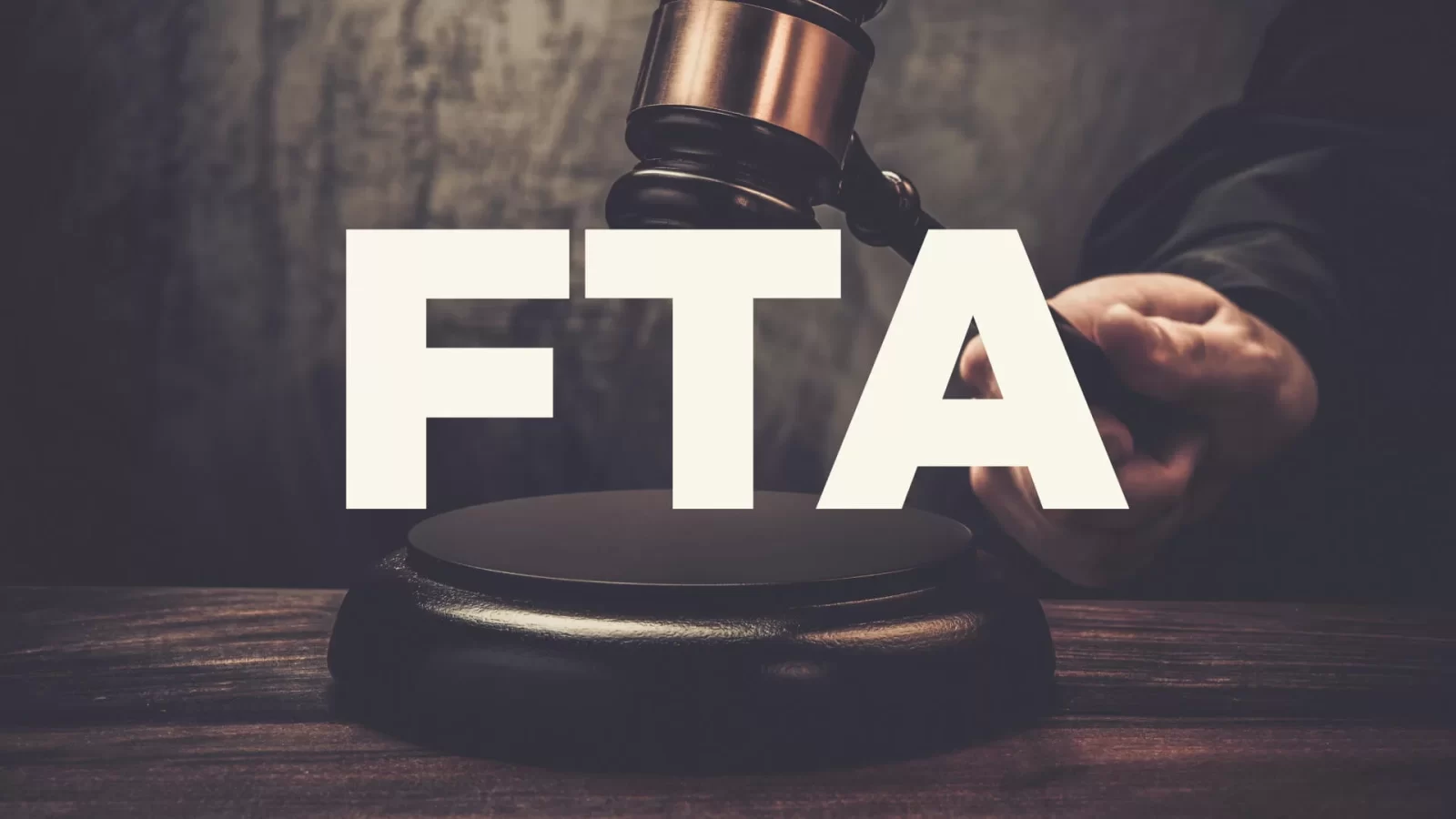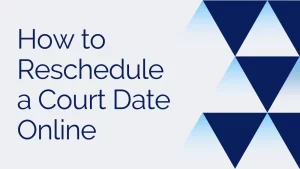What Does FTA Mean in Court?
FTA stands for “failure to appear” in court. It refers to when a defendant or individual involved in a court case does not show up for a scheduled court date or other required court appearance. Missing court can result in serious legal and financial consequences, so it’s important to understand what counts as an FTA and how to prevent it.
Definition of FTA
An FTA occurs anytime a person fails to appear for a court mandated event. This includes:
- Scheduled Hearings: Missing a scheduled court hearing, pre-trial conference, or trial date.
- Probation Meetings: Failing to meet with a probation officer when required.
- Court-Ordered Classes: Not attending court-mandated classes, counseling sessions, or other programs.
Showing up late or arriving unprepared can also count as an FTA in some cases.
Failure to Appear in Court
There are a variety of reasons why someone may fail to show up to court. Some common reasons include:
Forgetfulness
It’s easy to forget about a court date, especially if the notice arrives weeks or months in advance. Changing schedules and other obligations can also make it slip someone’s mind.
Fear and Anxiety
Many people feel nervous or anxious about going to court. For some, this anxiety is so intense that they avoid court altogether.
Transportation Issues
Lacking reliable transportation or having car trouble can make getting to the courthouse difficult or impossible for some people.
Work Obligations
Missing work to go to court may not be an option for individuals with inflexible schedules or hourly jobs. They may choose work over court to avoid losing wages.
Childcare Responsibilities
Arranging childcare so you can appear in court can be challenging for parents and caregivers. The costs of childcare may also be prohibitive.
While these reasons for missing court are understandable, they do not excuse someone from an FTA.
How Long Does an FTA Charge Stay On My Record?
FTA charges do not have a statute of limitations, and thus, will remain on your record until you serve the warrant. States often will not extradite people out-of-state for FTAs (unless the original charge was very serious), but FTAs will appear on any background check and will therefore result in arrests during routine traffic stops.
How Do I Get Rid Of An FTA Charge?
If you think that your charges may be categorized as “severe,” it is advised that you discuss your options with an attorney before making any decisions. That being said, once a warrant is in the system, there’s really only a few ways to get it removed:
- By surrendering yourself and making an appearance before the judge;
- By getting stopped by the police, getting arrested, and taken to jail until you make an appearance before the judge;
- By having your attorney come to an agreement over the terms of the warrant (this can only happen in some misdemeanor cases).
The decision is completely up to you, but many attorneys suggest turning yourself in, under your own terms, as opposed to waiting for a possibly inopportune time to run in with the police.
Consequences of FTA
The consequences handed down for an FTA often depend on the severity of the underlying charges. Typical penalties include:
Fines and Penalties
The court will likely issue fines, ranging from $100 to over $1,000 in some states. Additional fees and penalties may also accumulate.
Arrest Warrants
A bench warrant for the person’s arrest will usually be issued. This leads to further complications and expenses if the individual is arrested.
Future Difficulties
Having an FTA on your record can negatively impact current legal cases and make it harder to resolve future minor infractions.
These repercussions underscore why it’s so important not to miss court dates.
Why Do People Fail to Appear in Court?
As outlined above, there are many reasons why someone may fail to show up to court. A few additional reasons include:
They Don’t Take the Charges Seriously
Some individuals underestimate the seriousness and implications of even minor charges. Out of apathy, they skip court.
Substance Abuse Issues
Drug or alcohol addiction and abuse can make attending court very difficult for some defendants. Showing up sober or organized enough to remember court may prove impossible for those battling addiction.
Mental Health Issues
Similar to substance abuse problems, untreated mental health conditions like severe anxiety, depression, PTSD and others can prevent people from being willing or able to go to court.
How to Avoid an FTA
Ideally, you should do everything possible to make all scheduled court appearances. Some tips include:
Mark Court Dates
Record every court date clearly on your calendar. Set reminders several weeks, days, and hours before to help remember.
Request Date Changes
If scheduled court dates conflict significantly with your work schedule, school exams, or other major commitments, request a date change well in advance.
Arrange Transportation
Line up transportation to the courthouse several weeks early. Confirm the arrangement a few days before. Have a backup plan as well.
Take Time Off Work
Speak with your manager immediately about taking approved time off work to attend court. Provide documentation if needed.
Find Childcare
Figure out childcare coverage early if kids would prevent you from going to court. Reconfirm details before court happens.
What to Do If You’ve Missed Court
If you do happen to miss a court date and receive an FTA, take the following steps:
Contact the Court Immediately
Call the courthouse as soon as possible. Get information on next steps and find out if a warrant has been issued.
Explain Why You Missed Court
Provide the court clerk or judge with an explanation for the absence. Honesty is key here even if the reasons seem insufficient.
Provide Documentation If Possible
Documentation can strengthen an explanation about why you missed court. Doctor’s notes, pay stubs showing work schedules, childcare receipts, etc. may help.
Request a New Date
Ask the court to schedule a new hearing date. Make it a priority to attend this one or face additional penalties.
Getting the FTA Lifted
To get the actual failure to appear lifted from your record, you must:
File a Motion
Draft and submit an official motion to the court asking for the FTA to be recalled and cancelled.
Attend the Next Scheduled Hearing
Go to the next hearing and explain to the judge in person why the FTA should be recalled. Bring any and all supporting documentation.
Provide Proof to Support Motion
Supply proof to back up claims about why you missed court. The judge will review submitted evidence and rule on recalling the FTA.
Getting an FTA expunged from your record is key to avoiding lasting consequences.
Consequences of Multiple FTAs
The impacts of a single FTA are substantial enough. However, if you rack up multiple FTAs over a short span of time, far harsher consequences typically follow. A few potential repercussions include:
Harsher Fines and Penalties
Each new FTA can draw exponentially higher fines plus elevated mandatory fees. These quickly become exorbitant.
Increased Likelihood of Arrest Warrant
The more you miss court, the higher the chances the judge will issue a bench warrant. This puts your freedom at risk.
Jail Time in Extreme Cases
In rare instances involving multiple serious criminal charges, repeated FTAs could land you actual jail time for contempt of court.
Clearly, failing to appear in court multiple times magnifies penalties significantly. Do everything possible to avoid multiple FTAs.
How Do I Turn Myself In Correctly? What Happens When I Turn Myself In for a Bench Warrant?
Contrary to popular belief, the police will rarely arrive at your doorstep to serve a bench warrant. That being said, the consequences for FTA charges get worse and worse as time goes on, so it’s important that you turn yourself in as soon as possible. Before you turn yourself in, recognize that if you do not retain an attorney before turning yourself in, you may be unable to reach an attorney in a timely manner after being incarcerated. Further, many misdemeanor manners can be handled by an attorney without your needing to appear in the courts. Also prior to turning yourself in, it would be a good idea to set up some way of posting bail the moment you go to court. Either talk to a local bail bondsman, or work out a deal with a family member to help you out.
What Are The Rules Of Court?
Courts adhere to a strict set of rules and regulations for visitors. They include, but are not limited to:
- Shirts and shoes are required in the courthouse
- Food, drinks, and cell phones are not allowed
- Weapons are not allowed and all visitors are subject to a weapons screening upon arrival
- All electronic pagers, cell phones, computers, tablets, and laptops must be turned off
- You must remain silent and quiet once the judicial proceedings has begun
- You cannot communicate with any inmates at any time
What Happens To My Bail?
If you fail to appear for a court date, the original bail bond will be forfeited to your State and a new bail bond amount will be set (typically with more strict and costly amounts than the original bail). In these cases, there’s also a chance that the courts charge you with bail jumping as well. If you’ve posted collateral with a bail bondsman to cover the cost of your bail, they may hire a headhunter to bring you into court (as to avoid paying the full amount for bail), and that collateral may be subject to liquidation.
But What If I’m Innocent, What’s My Defense?
An FTA warrant doesn’t concern the details of your case. Even if you are found not guilty for charges and the case is thrown out, you are still expected to show up for any and all hearings concerning your case (if you don’t have an attorney representing you). That being said, there are two defenses that have historically held up in court:
- No Notice To Appear: The court is required to give you proper notice that you are supposed to appear in court. If the courts have failed to do so, then you may be able to fight the failure to appear charges. Typically, the courts will notify you by snail mail. That being said, not receiving a notice because you failed to let the courts know of an address change does not excuse your failure to appear.
- FTA Was Not Willful: If you can argue that your failure to appear in court was not on purpose, and you can prove that you tried to do everything in your power to fulfill your obligations, you may be able to get your FTA charge dismissed. Essentially, any unforeseen circumstance that was out of your control may suffice in this defense, including serious injury, illness, natural disaster, etc.
Conclusion
Attending all mandated court dates should be a top priority. An FTA leads to fines, permanent records, warrants, and compounded legal issues. Understand what qualifies as failure to appear, stay on top of court schedules, and remember the serious repercussions. Leverage resources to address what’s preventing attendance. Finally, act immediately if you miss court so penalties don’t escalate further.
FAQs
What if I show up late to court?
Showing up late also counts as failure to appear and carries many of the same penalties. Call the court if running behind to demonstrate you intended to respect the court date.
Can I reschedule court dates?
Yes, you can submit date change requests in advance of the court date. Supply clear reasons why the current date doesn’t work. Know that delays frustrate prosecutors and judges.
What if I have an emergency?
Contact the court as soon as safely possible after an emergency like a medical crisis or accident prevents attending. Be prepared to show documentation.
What if I forgot about court?
Forgetting about court is still considered failure to appear. Admit fault to the judge, apologize sincerely, provide context about why it slipped your mind, and request another chance.
What if childcare falls through suddenly?
Inform the court right away if last minute childcare cancellations prevent attending court. Explain the situation and your efforts to arrange backup care. Supply documentation from the childcare provider if possible.







